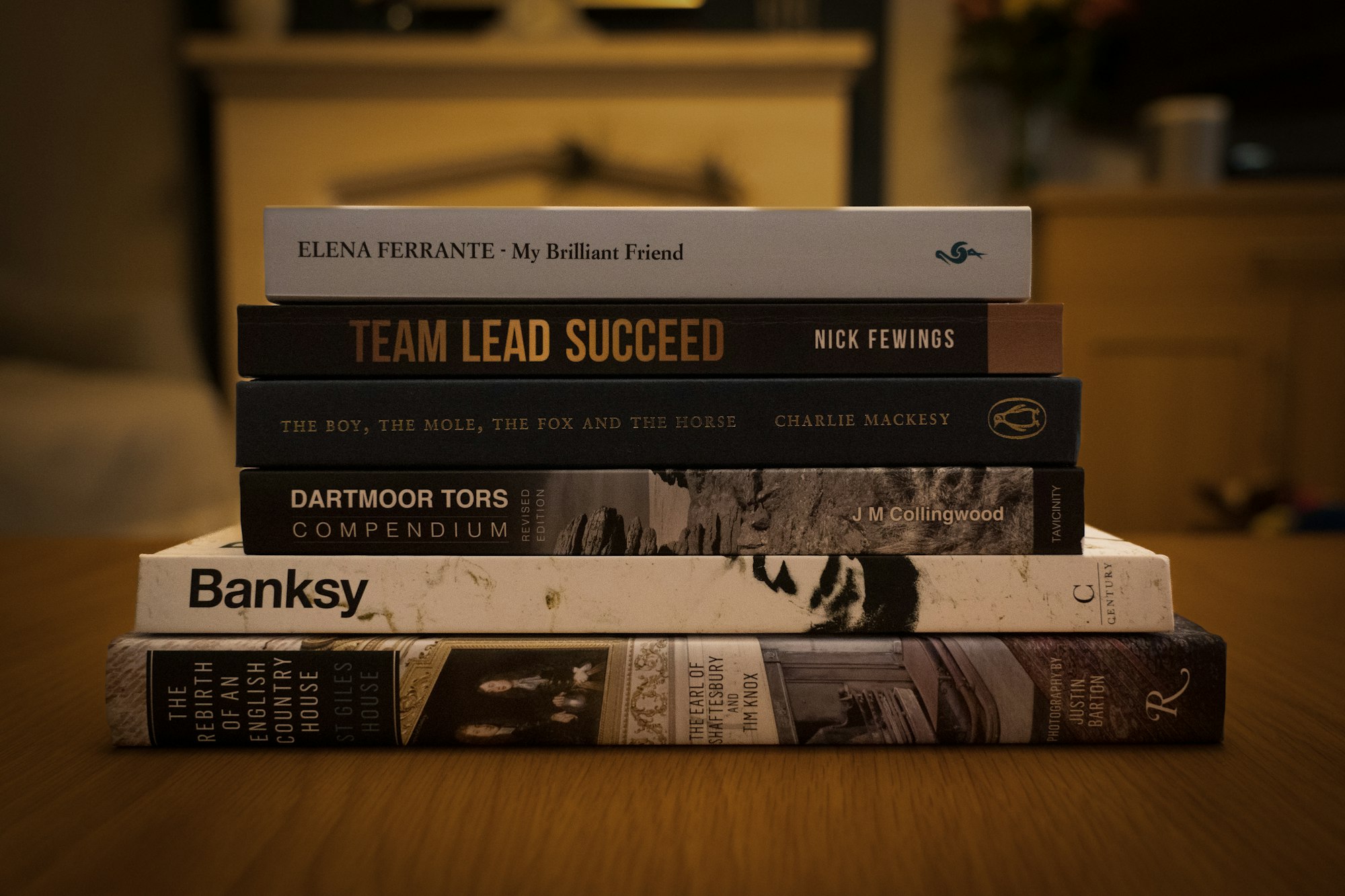How to Hire Someone to Write a Book for You (2024)

Are you dreaming of having your own book but don't have the time or expertise to write it yourself?
Do you feel like writing your own book will take a lot of time?
Don't worry, you can hire someone to bring your vision to life!
In this article, we'll show you how to hire a skilled writer who can transform your ideas into a captivating book.
From defining your project to collaborating throughout the writing process, we've got you covered. Get ready to take the first step towards making your book a reality!
Table of Contents (click to expand)
Key Takeaways
- Determine the genre, purpose, and desired length of your book.
- Consider factors influencing the cost and determine your budget based on needs and expectations.
- Look for a good ghostwriter in writing communities, freelancing websites, and directories, and evaluate their portfolios, writing samples, and testimonials.
- Ask questions about experience and approach, gauge suitability and creativity, and check references for feedback and samples.
Step 1. Define Your Book Project

To successfully define your book project, you need to consider a few key points.
First, determine the genre of your book, as this will help you narrow down your target audience.
Next, clarify the purpose of your book - is it to educate, entertain, or inspire?
Decide on the desired length of your book, as this will impact the scope and depth of your content.
Determine Genre, Audience, Purpose, Length
Start by clearly defining the genre, audience, purpose, and length of your book project.
Knowing the genre will help you determine the style and content of your book.
Consider your audience's interests and preferences to ensure your book resonates with them.
Define the purpose of your book: is it to entertain, educate, or inspire?
Finally, determine the length of your book, whether it's a short novella or an epic saga.
These crucial decisions will shape your book project.
Create an Outline and Content Plan
Once you have determined the genre, audience, purpose, and length of your book project, it's time to move on to creating an outline and content plan. This crucial step will help you organize your thoughts and ensure a cohesive and engaging book.
Start by outlining the main chapters or sections of your book and then break them down into subtopics or key points. This will serve as a roadmap for your hired writer and guide them in creating the content you desire.
Step 2. Set Your Budget

Now that you have defined your book project, it's time to set your budget.
There are several factors that can influence the cost of hiring someone to write a book for you, such as the length of the book, the complexity of the subject matter, and the writer's experience.
Understanding the average prices for different book types can give you a general idea of what to expect, and there are also options available to help reduce costs if needed.
Factors Influencing Cost
Determine your budget before proceeding with hiring a book writer. Consider the factors that influence the cost of hiring a professional writer or ghost writer for your book.
The complexity of the writing process, the writer's level of experience, and the specific requirements of your project all play a role in determining the cost. Hourly rates can vary greatly, so it's important to set a budget that aligns with your needs and expectations.
| Factors Influencing Cost |
|---|
| Complexity of Writing Process |
| Writer's Experience |
| Project Requirements |
| Hourly Rate |
Average Prices for Different Book Types
When setting your budget for hiring a book writer, it's important to consider the average prices for different book types. The cost of hiring a professional ghostwriter can vary depending on the type of book you want to write.
For example, a non-fiction book may cost between $15,000 to $50,000, while a fiction book can range from $10,000 to $100,000.
Keep in mind that these prices can also be influenced by factors such as book sales potential, the complexity of the publishing process, and the uniqueness of your book idea.
Options to Reduce Costs
Consider cost-saving options when setting your budget for hiring a book writer. To reduce costs while still getting the best writers, you can explore the following options:
- Hire a professional book writer with extensive experience from a reputable and professional writing company.
- Consider hiring a freelance writer who specializes in book writing.
- Look for writers who offer package deals or discounts for long-term projects.
- Consider collaborating with a co-author to share the workload and reduce costs.
- Explore self-publishing options, which can be more cost-effective than traditional publishing routes.
Step 3. Find Writer Candidates

Now that you have set your budget, it's time to find writer candidates who can bring your book to life.
Start by looking in places like writing communities, freelancing websites, and professional writer directories.
Once you have a list of potential ghostwriters, carefully evaluate their portfolios, writing samples, and testimonials to determine if they have the skills and experience necessary to meet your needs.
Where to Look for Writers
To begin your search for writer candidates, start by exploring various online platforms that specialize in connecting authors with professional writers. These platforms can be a great resource for finding the right person to help you write your own book.
Here are five places to start your search:
- Freelance writing websites: These platforms have a wide range of writers with different specialties and experience levels. UpWork.com would be an example of this.
- Writing communities: Online forums and social media groups dedicated to writing can be a treasure trove of talented writers.
- Writer directories: Websites that list professional writers can help you find someone who specializes in the genre or style you're looking for. A great example is Reedsy.com.
- Referrals: Reach out to fellow authors or industry professionals for recommendations on good ghostwriters.
- Writing agencies: These agencies can match you with a writer who can help you with the first draft of your book. A place like TheUrbanWriters.com is a good example.
When looking for a writer, it's important to find the right person who understands your vision and can bring it to life. Take your time and explore different options to ensure you find the right place to hire a writer for your book.
Evaluating Potential Ghostwriters
Start by researching and analyzing multiple potential ghostwriters to find the most suitable candidate for your book. Look for experienced writers who specialize in your genre and have a track record of success.
Evaluate their writing samples to ensure they have the skills and style you desire.
Consider hiring from professional book writing services, as they often have a pool of talented ghostwriters. Don't forget to have them sign a non-disclosure agreement to protect your ideas and content.
Step 4. Interview Ghostwriters

Now that you have found potential ghostwriters, it's time to interview them and ask important questions to gauge their suitability for your project.
During the interview, pay attention to any red flags that may indicate potential issues down the line.
Make sure to check their references to get a better understanding of their past work and professionalism.
Questions to Ask Candidates
During the interview process, ask potential ghostwriters specific questions about their experience and approach to writing a book for you.
To ensure you find the right fit, consider the following questions:
- How do you handle the amount of work involved in writing a book?
- Can you share examples of successful book projects you've worked on?
- How do you generate ideas and ensure they align with my vision?
- Are you willing to follow specific instructions and work collaboratively?
- How do you stay motivated and committed to the hard work required to complete a book?
Red Flags to Watch For
When interviewing ghostwriters, be alert for warning signs that may indicate they aren't the right fit for your book project.
It's essential to find the right ghostwriter who understands your target audience and can deliver a high-quality book.
One red flag to watch for is a lack of enthusiasm or interest in your project.
Another warning sign is if the ghostwriter hasn't done much work in your genre or doesn't have a strong portfolio of past work.
Checking References
To effectively assess potential ghostwriters for your book project, it's important to check their references. By doing so, you can gain valuable insights into their skills and credibility.
When checking references, consider the following:
- Feedback from previous clients: What do they say about the writer's work?
- Samples of previous work: Is the writer's style and quality a good fit for your project?
- Expertise in your genre: Have they worked on similar projects before?
- Reputation among fellow writers: Are they respected in the writing community?
- Communication and professionalism: Will they be a reliable and skilled writer for your book?
Checking references allows you to make an informed decision and find an independent freelancer who's a good fit for your book project.
Step 5. Hire Your Ghostwriter

Now that you've narrowed down your options and conducted interviews, it's time to make the final decision and hire your ghostwriter. During this step, there are a few key points to consider.
First, make sure to agree on milestones, deliverables, and payment terms to ensure clarity and accountability throughout the project.
Second, it's crucial to sign a ghostwriting agreement that outlines the scope of work, confidentiality, and copyright ownership.
Lastly, establish best practices for communication to maintain a smooth working relationship with your ghostwriter.
Agree on Milestones, Deliverables and Payment
First, establish clear milestones, deliverables, and payment terms when hiring your ghostwriter. This will ensure a smooth collaboration and avoid any misunderstandings along the way. Here are some key points to consider:
- Define specific milestones for the completion of different sections or chapters of the book.
- Clearly outline the deliverables expected from the ghostwriter, such as a detailed outline, first draft, and final manuscript.
- Determine the payment structure, whether it's a fixed fee or a percentage based on the book's sales.
- Set deadlines for each milestone and establish a timeline for the project.
- Discuss any additional expenses that may arise during the writing process.
Signing a Ghostwriting Agreement
Once you have agreed on milestones, deliverables, and payment terms, it is time to sign a ghostwriting agreement to officially hire your ghostwriter. This agreement serves as a legally binding contract that outlines the responsibilities, rights, and expectations of both parties involved.
It ensures a smooth collaboration and protects your interests. To give you an idea, here's a simple table that highlights the key components usually included in a ghostwriting agreement:
| Component | Description |
|---|---|
| Scope of Work | Clearly define the scope of the book, including its genre, length, and tone. |
| Copyright and Ownership | Determine who will own the rights to the book and how royalties will be split. |
| Confidentiality | Specify the confidentiality terms to protect sensitive information. |
| Payment and Deadlines | Set the payment schedule and establish deadlines for each deliverable. |
Signing a ghostwriting agreement ensures a professional and transparent working relationship, giving you peace of mind as you embark on this exciting journey of bringing your book to life.
Best Practices for Communication
After signing a ghostwriting agreement, it's essential to establish effective communication practices when working with your hired ghostwriter. To ensure a good book and a smooth collaboration, consider the following best practices:
- Clearly communicate your expectations and goals.
- Discuss your preferred writing style and voice.
- Provide detailed feedback on drafts.
- Encourage open and honest communication.
- Emphasize the importance of thorough research for an accurate and well-rounded final draft.
Step 6. Collaborate Throughout the Writing Process

Now that you have hired a ghostwriter, it's important to collaborate with them throughout the writing process.
This collaboration involves providing background information about the book's content, giving feedback on drafts, and maintaining clear communication.
Providing Background Information
Throughout the writing process, you should regularly provide the writer with specific and detailed background information to ensure a thorough and accurate portrayal of your story. This step is crucial in creating a book that truly reflects your vision.
Here are five important things to consider when providing background information:
- Share personal anecdotes and experiences that shaped your story.
- Provide detailed descriptions of key characters and their motivations.
- Share any relevant research or sources that influenced your narrative.
- Discuss the overall theme and message you want to convey.
- Communicate your desired tone and style for the book.
By collaborating closely with your writer and providing them with this valuable information, you can ensure that your story is brought to life in the best possible way.
Whether you choose to work with a ghostwriting agency or a professional ebook ghostwriter, clear communication and sharing of background information is a good way to achieve the desired outcome.
Giving Feedback on Drafts
During the writing process, it's crucial to collaborate and give constructive feedback on drafts to ensure the book meets your expectations.
Hiring someone to write a book for you means entrusting them with your vision, but it's important to have an active role in shaping the final product.
Take the time to review the drafts and provide feedback that will help refine the book. By actively participating in this process, you can ensure that the book reflects your desired outcome.
Maintaining Clear Communication
To maintain clear communication when hiring someone to write a book for you, actively collaborate with the writer throughout the writing process. This ensures that you stay involved and informed, and that the writer understands your vision.
By being a team member rather than just an employer, you create a sense of belonging and encourage the writer to produce high-quality work.
Regular check-ins, open discussions, and clear expectations will help maintain clear communication and ensure that the final product meets your expectations.
Step 7. Publish and Promote Your Book

Now that your book is complete, it's time to think about how you want to publish and promote it.
There are two main options to consider: self-publishing or traditional publishing. Self-publishing gives you more control over the process and allows you to keep more of the profits, while traditional publishing offers the expertise and resources of a publishing house.
Whichever route you choose, marketing your book will be crucial to its success. You'll need to develop a marketing plan, build an online presence, and consider other promotional strategies to reach your target audience.
Once you have a plan in place, it's time to take the next steps and start spreading the word about your book.
Self-Publishing vs Traditional Publishing
Begin by evaluating the pros and cons of self-publishing and traditional publishing when it comes to publishing and promoting your book. Consider the following:
- Self-publishing allows you to have complete control over your book and its distribution.
- Traditional publishing offers access to established distribution channels and marketing support.
- Self-publishing gives you the potential for higher royalties.
- Traditional publishing may increase your chances of getting on the bestseller list.
- Self-publishing allows for the option of printing physical copies of your book.
Marketing Your Book
Maximize the visibility and reach of your book by implementing effective marketing strategies.
To market your book successfully, utilize social media platforms to engage with your target audience. Create compelling blog posts that resonate with readers and showcase your book's unique selling points.
Invest in a professional cover design that captures attention and entices potential readers.
By promoting your book through various channels, you increase its chances of becoming a best seller.
Seize this opportunity to make your book a success.
Next Steps After Completion
To successfully publish and promote your book after completion, take the necessary steps to ensure its visibility and reach. Here are some next steps to consider:
- Find a talented writer to help you with the editing process.
- Hire a book formatter to give your book a professional and polished look.
- Create an eye-catching book cover design that captures the essence of your story.
- Develop a marketing plan to reach your target audience and generate buzz.
- Utilize social media and online platforms to promote your book and engage with readers.
Conclusion
To ensure a successful collaboration with a professional writer, carefully evaluate potential candidates based on their expertise, qualifications, and compatibility with your project.
Once you have selected the right person to hire, communicate your expectations clearly and establish a timeline for the book's completion.
Throughout the writing process, maintain open and regular communication to provide feedback and address any concerns. Remember, this is your book, and by hiring someone to write it for you, you're taking the first step towards bringing your vision to life.
Congratulations on successfully hiring a ghostwriter to write your book! By defining your project, setting a budget, interviewing candidates, and collaborating throughout the writing process, you have taken important steps towards bringing your book to life.
Now, it's time to publish and promote your book, sharing your story with the world. Remember to stay involved and engaged throughout the process to ensure that your vision is fully realized.
Best of luck on your publishing journey!
